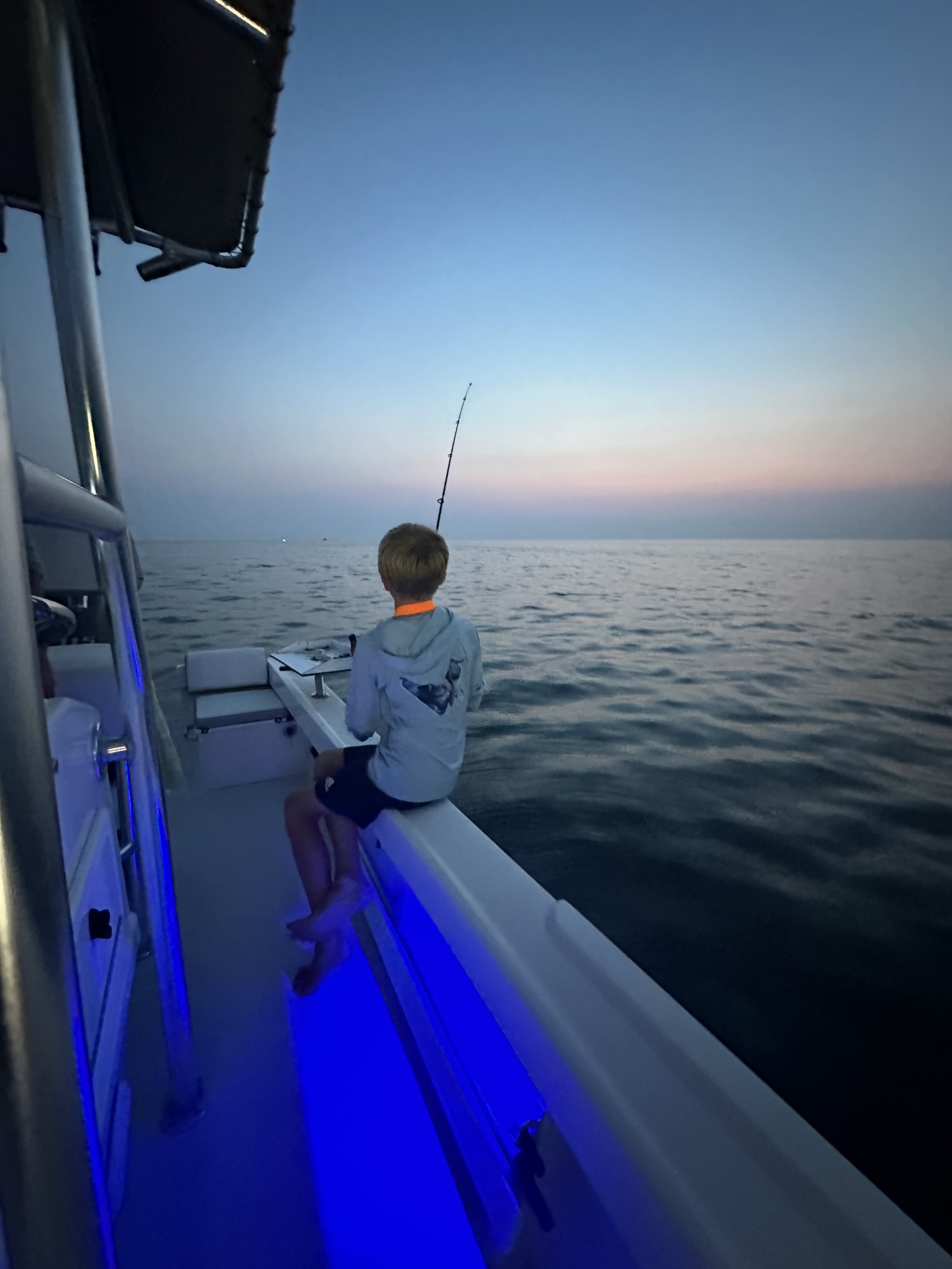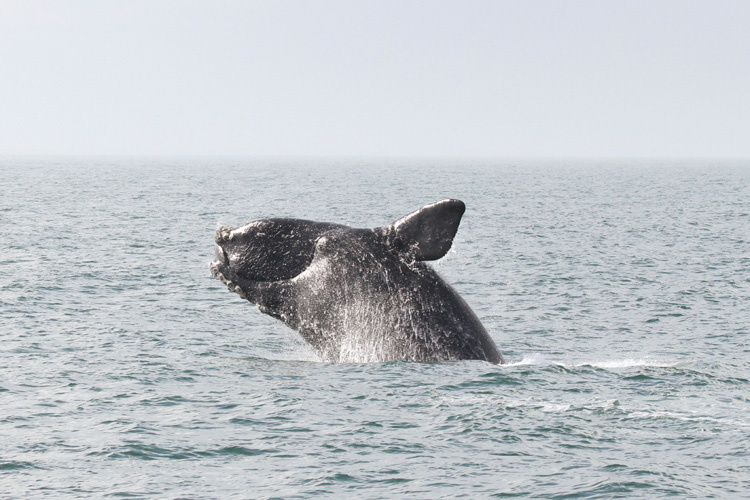

Bennett Nickerson Environmental Consulting (BNEC) is dedicated to protecting ocean ecosystems through science-based solutions and strong policy advocacy. We focus on preventing overfishing, promoting sustainable forage fisheries, and safeguarding endangered and threatened marine species. Our expertise spans environmental law, ocean policy, and marine and fisheries science, and we bring a collaborative, stakeholder-driven approach to every project we take on.
Atlantic mackerel - Photo credit NOAA Fisheries
Forage Fish
It’s all connected. Sustainable management of forage species is essential to the health of ocean ecosystems. BNEC works with the Mid-Atlantic Fishery Management Council, New England Fishery Management Council, and the Atlantic States Marine Fisheries Commission to ensure that fisheries targeting forage species are managed using the best available science, consider predator-prey relationships, and reflect the needs of the entire marine ecosystem.
BNEC participates in public comment processes, provides technical input on management plans, and collaborates with scientists, policymakers, and conservation partners to advocate for ecosystem-based management. By elevating science and amplifying stakeholder voices, BNEC works to ensure the protection of forage fish—vital to whales, seabirds, and larger predatory fish—for the health and resilience of the entire marine food web.
Some of the solutions we work on include:
Ecosystem-based management policies: Recognize and prioritize the vital role forage species play in the marine food web.
Conservative Catch Limits: Establish catch limits that account for the needs of predators, ensuring sufficient forage fish remain in the ecosystem to support the food chain.
Consider Ecosystem-Wide Effects: Manage fisheries with a holistic perspective, taking into account the health of the entire forage fish assemblage, rather than just individual species.
Sustainable management of current forage fisheries: Set catch limits that consider the needs of predators and the health of the entire forage fish assemblage.
Preventing new fisheries on unmanaged forage species: Prohibit or carefully assess the potential impacts of fishing on currently unfished species.
Move to Ecologically Sustainable Yields: Existing fisheries should transition to management practices that consider all the impacts of fishing on forage fish populations and the broader ecosystem.
Reduce Bycatch: Implement measures to minimize the accidental catch of forage fish in fisheries targeting other species.
Protecting key habitats and foraging grounds: Identify and safeguard critical spawning and foraging areas from development and destructive practices.
The use of the best available science: management should used the best available science that considered predator-prey dynamic and the role of forage in the overall ecosystem
North Atlantic right whale - Photo credit NOAA fisheries
Sustainable Fisheries Management
Sustainable fisheries management is essential to ocean health and coastal economies. It ensures healthy fish populations and thriving marine ecosystems—while securing long-term supplies of seafood for generations to come. In the U.S. alone, commercial and recreational fisheries contribute $321 billion to the economy each year and support 2.3 million jobs.
Protecting these vital benefits requires science-driven, ecosystem-based management. That includes setting sustainable harvest limits to prevent overfishing, reducing bycatch of non-target species, and rebuilding depleted fish stocks quickly and effectively when needed.
BNEC works closely with the Mid-Atlantic Fishery Management Council (MAFMC), New England Fishery Management Council (NEFMC), and the Atlantic States Marine Fisheries Commission (ASMFC) to shape policies and harvest rules that reflect the best available science and consider the broader marine ecosystem—not just individual species. We advocate for forward-looking, ecosystem-based solutions that support resilient fisheries and healthy oceans.
Some of the solutions we work on include:
Sustainable Fishing Practices & Regulations:
Conservative catch limits: Establish realistic and science-based catch limits and quotas to ensure that fish populations can recover and remain healthy.
Restrictions on fishing gear: Implement regulations that restrict the use of fishing gear that causes excessive bycatch (unintentional capture of non-target species) and habitat damage.
Marine Protected Areas: Designate and manage marine protected areas (MPAs) to safeguard critical habitats and allow fish populations to thrive.
Consumer Choices and Awareness: Encourage consumers to choose seafood from sustainable fisheries and avoid overfished species.
Addressing Underlying Issues:
Combat Illegal Fishing: Combat illegal, unreported, and unregulated (IUU) fishing that undermines sustainable management efforts.
Best Available Science: Ensure management decisions consider the best available scientific research to better understand fish populations, ecosystems, and the impacts of fishing.
Support Fishing Communities: Empower local fishing communities with the knowledge and resources to fish sustainably.
Endangered Species and Marine Mammals
Bycatch is the greatest threat to marine mammals today. Each year, thousands of whales, dolphins, and seals are accidentally caught and killed in fishing gear—often as unintended victims of otherwise legal fishing operations.
In response to growing concern over the alarming decline—and, in some cases, extinction—of marine mammal species due to human activity, the Marine Mammal Protection Act (MMPA) was enacted in 1972, followed by the Endangered Species Act (ESA) in 1973. These landmark laws were among the first in the world to establish a comprehensive framework for the conservation of marine mammals and other imperiled wildlife, prohibiting the harassment, hunting, capture, and incidental killing of protected species in U.S. waters.
Despite these strong legal protections, modern threats like entanglement, ship strikes, and ocean noise continue to endanger marine mammal populations.
BNEC works with federal agencies and other conservation organizations to strengthen protections under the MMPA and ESA by advancing science-based policy solutions and promoting more sustainable fishing practices.
Some of the solutions we work on include:
Modifying Fishing Gear to Reduce Bycatch: Transition to ropeless (on-demand) gear in trap/pot fisheries to protect large whales, encourage the use of turtle excluder devices (TEDs), circle hooks, and weak links to help non-target species escape, and incorporate bycatch reduction devices (BRDs) in trawl nets.
Implementing Time-Area Closures: Temporarily restrict fishing activities in areas and seasons where endangered species are known to aggregate (e.g., whale migration corridors, spawning grounds) using real-time data and dynamic ocean management to adjust closures based on species presence.
Ensuring Effective Vessel Speed Restrictions: Reduce ship speeds in designated zones to lower the risk of collisions with whales, sea turtles, and other marine animals and alter shipping lanes to avoid critical habitats.
Addressing Ocean Noise Pollution: Work to limit or regulate seismic surveys and industrial noise in sensitive habitats, and promote the use of quieter ship technologies and seasonal noise restrictions.
Protecting Critical Habitat: Work to designate and enforce marine protected areas (MPAs) for endangered species and restore degraded habitats such as coral reefs, seagrass beds, and coastal wetlands.
Improveing Monitoring and Data Collection: Promote satellite tracking, observer programs, and electronic monitoring to better understand species movements and human impacts. and require transparent reporting of bycatch and incidental take.
Support International Cooperation





